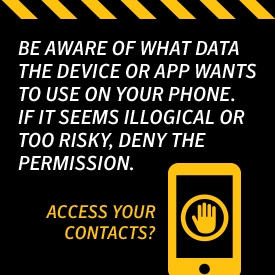Securing the Internet of Things
Wearable devices, the connected home, and the connected car are all relatively recent technologies, yet have quickly become the new rage in tech. Everything from the devices in your pocket to the appliances in your home and the car you drive can transmit information about your life habits because they all have one thing in common...

Wearable devices, the connected home, and the connected car are all relatively recent technologies, yet have quickly become the new rage in tech. Everything from the devices in your pocket to the appliances in your home and the car you drive can transmit information about your life habits because they all have one thing in common: they are connected to the Internet and you are connected to them. And in some cases they are connected to each other. This tech phenomenon is called the Internet of Things (IoT).

Don’t wait until a threat strikes.
Security threats and malware lurk on Windows PCs, Macs, and Android and iOS devices. If you use more than one device – like most of us do – you need an all-in-one security suite. Meet Norton Security Premium.
Enjoy peace of mind on every device you use with Norton Security Premium.
The Internet of Things allows wearable devices such as wristbands and heart monitors to track your fitness and health goals. These devices can even track places you’ve visited and your current location. The connected home has brought new meaning to the concept of convenience. Whether you need to check the cameras in your home, lock or unlock a door, adjust temperature or lighting, pre-heat the oven, or turn off a TV—you can do it all remotely with just a few taps on your smartphone. Modern cars are also becoming increasingly computerized, and automakers are working with technology companies to bring you a truly connected experience in your car that goes beyond the standard blue tooth technology.
With the rapid adoption of new IoT innovations and products that enter the market, and both consumers and companies embracing the transformation, the Internet of Things is expected to grow. This is exciting for the tech enthusiast in all of us, but just remember that when you’re connected to everything, everything can now access your information, which can make all of these connected technologies an attractive target for people who want to make a profit off of that information. Every Internet-connected device you own adds another privacy concern to think about, especially since most of them connect to your smartphone. Smartphones are the most connected devices we own, and as more functionalities are added the more information we store in them, this makes smartphones and anything connected to them particularly vulnerable to different types of attacks. According to NortonLifeLock’s 2016 Internet Security Threat Report attackers are all about the Internet of Things and the burden of preventing attacks against IoT devices falls on the user.
Be sure to stay informed and know the surefire ways to stay protected and secure your information today and in the connected future.

Security concerns associated with wearable technology
Wearable devices are essentially data collectors. The personal data collected and stored with these devices, such as your name, age, health and location can aid criminals in stealing your identity. These devices also have the capability to transmit information via Bluetooth LE or wireless Internet, which can leave the information they hold vulnerable to cyber criminal activity.
NortonLifeLock Security Response experts conducted an in-depth study on wearable health tracking devices and apps and found there were multiple vulnerabilities with these devices which hackers could exploit to gain access to your personal information.
Tips for securing the personal information in your wearables
- Use caution when using social sharing with these apps. Social sharing features can give away your location and when you were doing your workout. Cybercriminals can use this to track your movements, which could lead to a potential cyberstalking issue.
- Always make sure you know the privacy policy of the apps you use.
- Be aware of what data the device or app wants to use on your phone. If it seems illogical or too risky, deny the permission.
Security concerns associated with the connected home
In addition to making daily tasks more convenient, the applications that go along with connected home devices also collect data about your daily habits and usage. Considering that these applications jointly collect data about your home in one central location, you should know what the companies are doing with all of that data. In addition to the collection of this data, do you know how to stay secure from breaches to keep that data from falling into the wrong hands?
Tips for staying protected in the connected home
A smartphone is typically the control center for the connected home and the home Wi-Fi is usually what connects everything. So, securing your connected home is two-fold, thus it’s important to take steps to secure both your home network and your smartphone to avoid potential breaches.
Editorial note: Our articles provide educational information for you. Our offerings may not cover or protect against every type of crime, fraud, or threat we write about. Our goal is to increase awareness about Cyber Safety. Please review complete Terms during enrollment or setup. Remember that no one can prevent all identity theft or cybercrime, and that LifeLock does not monitor all transactions at all businesses. The Norton and LifeLock brands are part of Gen Digital Inc.




Want more?
Follow us for all the latest news, tips and updates.